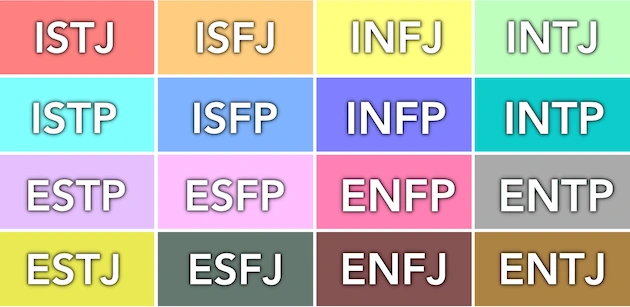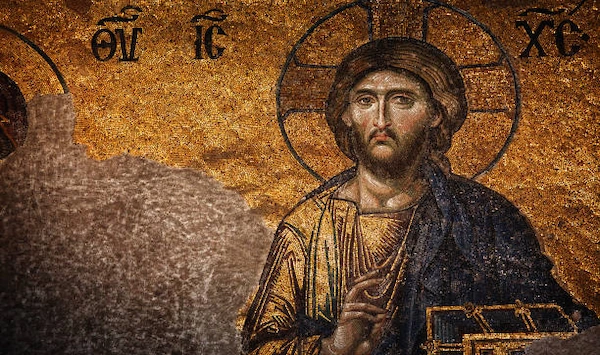
🧠 The Myers-Briggs Type Indicator (MBTI), a widely used personality assessment tool, categorizes individuals into 16 distinct personality types based on four dichotomies: Introversion (I) vs. Extraversion (E), Intuition (N) vs. Sensing (S), Thinking (T) vs. Feeling (F), and Judging (J) vs. Perceiving (P). Each of these combinations contributes to a unique psychological profile that profoundly influences an individual’s worldview, including their deeply personal approach to spirituality and transcendence.
🌟 The Intersection of MBTI and Spirituality
In recent years, there has been growing interest in the fascinating correlation between personality types and spiritual inclination. Research and extensive anecdotal evidence suggest that certain MBTI types exhibit a natural predisposition towards spiritual exploration, offering unique perspectives on how personality traits can fundamentally shape spiritual journeys. This comprehensive exploration seeks to delve deeper into the specific MBTI profiles that are most often associated with spiritual pursuits, examining the key characteristics, behaviors, and philosophical underpinnings that connect these types to various spiritual practices and mystical experiences.
💡 Key Insight: Spirituality isn’t just about religious belief—it encompasses the search for meaning, connection to something greater than oneself, and the exploration of consciousness itself. Different MBTI types approach this quest through distinct psychological pathways.
🔮 The Spiritual Profiles in MBTI
🌸 INFP: The Mediator – The Mystical Idealist

🎭 Core Characteristics
INFPs, often referred to as “Mediators,” embody a rich tapestry of introspection, empathy, and an insatiable quest for meaning that goes beyond the material world. They possess a natural affinity for introspection that leads them to explore the deepest recesses of their thoughts, emotions, and spiritual longings. Myers and Briggs (1980) describe INFPs as “thoughtful, sensitive, and dedicated,” highlighting their genuine desire to understand not only themselves but the fundamental nature of existence itself.
This personality type is driven by deeply held values and an innate sense of ethics that often transcends conventional morality, prompting them to seek authenticity in their interactions and spiritual experiences. They are often seen as dreamers with profound visions for a better world, and their creativity flows from their compassionate hearts and imaginative minds that naturally gravitate toward the mystical and transcendent.
🕉️ Connection to Spirituality
The spiritual inclination of INFPs is profound, multifaceted, and deeply personal. They often perceive the world through a lens of wonder and existential questioning, which can lead to a deep sense of connection not only with their own inner lives but also with the cosmos and the collective human experience. Their introspective nature propels them toward a variety of spiritual practices:
- 🧘 Meditation and Mindfulness: INFPs are naturally drawn to contemplative practices that allow for deep self-reflection and spiritual insight.
- 📝 Spiritual Journaling: They often maintain detailed spiritual journals to track their inner journey and mystical experiences.
- 🌙 Dream Work: Many INFPs are fascinated by dream interpretation and see dreams as spiritual messages.
- 🎨 Creative Expression: Art, music, and writing serve as spiritual outlets and means of connecting with the divine.
- 🌿 Nature Spirituality: They find profound spiritual connection in natural settings and may be drawn to earth-based practices.
A study by Keng, Smoski, and Robins (2011) indicates that the mindfulness practices favored by INFPs are linked to increased emotional regulation and a deeper understanding of the self, reinforcing their spiritual journey toward enlightenment and self-realization.
🌟 Spiritual Characteristics of INFPs:
- Seek personal, authentic spiritual experiences rather than organized religion.
- Are drawn to mystical and esoteric traditions.
- View spirituality as a journey of self-discovery and personal growth.
- Often experience spiritual insights through creative activities.
- Are naturally empathetic and see interconnectedness in all life.
🌟 Notable Figures
Notable figures who exemplify the INFP personality type include luminaries like writer J.R.R. Tolkien, philosopher Søren Kierkegaard, and spiritual teacher Ram Dass. These individuals have significantly contributed to the discourse on spirituality through their profound insights and creative expressions.
Tolkien, in his epic works, reflects on themes of myth, morality, and the quest for purpose, presenting narratives that resonate with the human yearning for understanding and connection beyond the material realm. His concept of subcreation—the human ability to create as a reflection of divine creativity—embodies the INFP’s spiritual worldview.
Similarly, Kierkegaard’s explorations of existentialism and the “leap of faith” highlight the intrinsic spiritual struggles faced by INFPs. His emphasis on subjective experience and the importance of personal faith speaks directly to the INFP’s quest for meaning and understanding in a complex world.
🔮 INFJ: The Advocate – The Visionary Prophet

🎭 Core Characteristics
The INFJ type, also known as the “Advocate,” embodies a unique and complex blend of personality traits that distinguish them as natural spiritual leaders and visionaries. Individuals with this personality type possess an extraordinary ability to intuit the emotions and thoughts of others, allowing for a deep sense of empathy that drives their understanding of human experiences and spiritual truths.
Their moral compass is not merely a reflection of societal norms but is informed by a profound internal guiding philosophy that often has spiritual or mystical origins. INFJs are inherently driven by a desire to make a positive difference in the world, often motivated by an idealistic vision of what humanity can achieve when connected to a shared sense of higher purpose.
🕉️ Connection to Spirituality
Spirituality is often the foundational bedrock of the INFJ personality. Their introspective nature compels them to explore the depths of their consciousness, usually leading to engagement with sophisticated spiritual practices:
- 🧘 Advanced Meditation: INFJs often gravitate toward complex meditation techniques and contemplative practices.
- 📚 Spiritual Study: They deeply study religious texts, mystical writings, and philosophical works.
- 🌟 Visionary Experiences: Many INFJs report having profound spiritual visions or insights.
- 🤝 Spiritual Mentorship: They often become spiritual teachers or guides for others.
- ⚖️ Social Justice Spirituality: Their spirituality is deeply connected to creating positive change in the world.
John Beebe (2006) emphasizes that INFJs often embark on a journey of “individuation,” striving for a harmonious integration of their inner selves with the external realities they encounter. This journey represents a deeper spiritual pursuit aimed at transcendence and understanding one’s divine purpose within the larger tapestry of existence.
🌟 Spiritual Characteristics of INFJs:
- Often have prophetic or visionary experiences.
- Are drawn to ancient wisdom traditions and esoteric knowledge.
- See spirituality as inseparable from moral action.
- May experience spiritual “downloads” or sudden insights.
- Often serve as bridges between the spiritual and material worlds.
🌟 Notable Figures
Historical figures who exemplify the INFJ spiritual archetype include Martin Luther King Jr., Mahatma Gandhi, Nelson Mandela, and Mother Teresa. These individuals harnessed their profound understanding of human nature and divine purpose to advocate for significant social changes rooted in deeply held spiritual principles.
Martin Luther King Jr.’s message of love and non-violence during the Civil Rights Movement showcased the power of spiritual vision combined with moral action. His famous “I Have a Dream” speech reflects the INFJ’s ability to channel spiritual insight into transformative social vision.
Gandhi’s dedication to the principles of Ahimsa (nonviolence) and Satyagraha (truth force) exemplifies the INFJ’s aspiration to integrate their spiritual beliefs with concrete moral action, demonstrating how spiritual practice can become a powerful force for social transformation.
🌈 ENFP: The Campaigner – The Spiritual Explorer

🎭 Core Characteristics
ENFPs, commonly designated as “Campaigners,” embody a unique blend of enthusiasm, creativity, and open-mindedness that makes them natural spiritual explorers and evangelists. Their vibrant energy is often contagious, attracting others to their dynamic way of thinking and being. ENFPs are characterized by their extroverted intuition (Ne), which enables them to perceive mystical connections between seemingly unrelated concepts, fostering a rich inner world where spiritual ideas flow freely and interconnect in fascinating ways.
This quality not only enhances their creativity but also supports a nuanced understanding of complex spiritual topics, including personal evolution, consciousness expansion, and the interconnectedness of all existence. Their strong emotional intelligence allows them to empathize deeply with others’ spiritual journeys, supporting their belief in the fundamental interconnectedness of all beings.
🕉️ Connection to Spirituality
The adventurous spirit of the ENFP leads them to explore an incredibly eclectic range of spiritual practices, driven by insatiable curiosity and a desire to experience the full spectrum of human spiritual potential. Their spiritual journey is characterized by:
- 🌍 Spiritual Diversity: They may explore everything from New Age philosophies to ancient shamanic practices.
- 🎭 Experiential Learning: They prefer hands-on spiritual experiences over theoretical study.
- 🤝 Community Building: ENFPs often create or join spiritual communities and groups.
- 🎨 Creative Spirituality: They express their spirituality through art, music, dance, and other creative mediums.
- 🌟 Spiritual Evangelism: They love to share their spiritual discoveries with others.
- 🔄 Spiritual Flexibility: They adapt their spiritual practices based on what resonates with them at different life stages.
Research conducted by Duffy and Sedlacek (2007) indicates that ENFPs are one of the personality types most likely to actively engage in spiritual practices that foster self-exploration and community building. Such activities might include meditation circles, spiritual workshops, retreat experiences, or festivals that combine spiritual practice with creative expression and social connection.
🌟 Spiritual Characteristics of ENFPs:
- Are drawn to eclectic, non-dogmatic spiritual approaches.
- Love to experiment with different spiritual practices and traditions.
- See spirituality as a joyful, celebratory experience.
- Are natural spiritual networkers and community builders.
- Often integrate spirituality with social activism and humanitarian causes.
🌟 Notable Figures
Throughout history, many notable figures have exemplified the ENFP spiritual archetype with their profound contributions to literature, philosophy, and spiritual awakening. Walt Whitman expressed a deep reverence for nature and humanity in his transcendentalist poetry, echoing the ENFP’s yearning for universal connectedness and celebration of life’s diversity.
The Sufi poet Rumi articulated themes of divine love, cosmic unity, and ecstatic transcendence, embodying the ENFP’s innate desire to explore the full spectrum of human emotional and spiritual experience. His works continue to inspire spiritual seekers across cultures and traditions.
Modern figures like Robin Williams (though tragic in his personal struggles) demonstrated the ENFP’s ability to channel spiritual insights through creative expression, using humor and performance to explore deep spiritual themes and human connection.
🔍 Additional Profiles With Spiritual Inclinations
🏛️ INTJ (The Architect) – The Systematic Seeker
Core Approach: INTJs are strategic, analytical, and independent thinkers who approach spirituality like a complex system to be understood and mastered. They value knowledge and competence in all areas, including spiritual development.
Spiritual Expression: INTJs approach spirituality through rigorous intellectual exploration and systematic philosophical inquiry. They are driven to discern underlying patterns in spiritual beliefs, often questioning established norms and seeking deeper, more logical truths. Their spiritual practices might include:
- 📚 Philosophical Study: Deep dives into spiritual philosophy and comparative religion.
- 🧠 Rational Mysticism: Integrating scientific understanding with spiritual insight.
- 🏔️ Solitary Practice: Preferring individual spiritual exploration over group activities.
- 🔬 Experimental Approach: Testing spiritual practices for their effectiveness and authenticity.
🎨 ISFP (The Adventurer) – The Aesthetic Mystic
Core Approach: ISFPs are sensitive, artistic, and spontaneous individuals who experience spirituality through beauty, creativity, and authentic personal expression. They have a keen sense of aesthetics and are deeply connected to their emotions and the natural world.
Spiritual Expression: ISFPs view spirituality as an expressive, deeply personal journey, finding transcendence in beauty and artistic creation. Their spiritual practices include:
- 🎨 Sacred Art: Creating and experiencing art as spiritual practice.
- 🌲 Nature Immersion: Finding profound spiritual connection in natural settings.
- 🎵 Musical Spirituality: Using music and sound as gateways to transcendence.
- ⚡ Present-Moment Awareness: Finding spiritual significance in everyday, intimate experiences.
🌟 ENFJ (The Protagonist) – The Spiritual Guide
Core Approach: ENFJs are charismatic, empathetic leaders who are naturally attuned to the spiritual needs of others. They are gifted communicators who can inspire others with their spiritual vision and purpose-driven approach to life.
Spiritual Expression: ENFJs seek spiritual fulfillment through nurturing others’ spiritual development and promoting harmony. Their spiritual practices focus on:
-
- 👥 Community Leadership: Leading spiritual communities and groups.
- 🤝 Spiritual Mentorship: Guiding others on their spiritual journeys.
- ⚖️ Sacred Activism: Connecting spirituality with social justice initiatives.
- 🌍 Collective Healing: Using spiritual practices to promote healing and transformation in communities.
🧠 The Psychological Framework
🔍 Search for Meaning
At the core of understanding the interplay between MBTI types and spirituality lies Viktor Frankl’s existential philosophy, particularly his concept of the “will to meaning.” Frankl argued that this drive for meaning is perhaps the most fundamental aspect of human existence, essential not only for psychological well-being but for spiritual fulfillment.
For individuals with INFP, INFJ, and ENFP personality types, this inherent yearning manifests as a deep, often all-consuming quest for purpose and transcendent significance in their lives. They tend to wrestle with profound existential questions that lead them to explore various spiritual avenues:
- 🤔 Existential Questioning: “Why am I here?” “What is my purpose?” “What happens after death?”.
- 🌌 Cosmic Connection: Seeking to understand their place in the universe.
- 💫 Transcendent Purpose: Looking for meaning beyond material success or survival.
- 🔗 Interconnectedness: Exploring how all life is connected and meaningful.
🏔️ Spirituality as Self-Actualization
Abraham Maslow’s hierarchy of needs illustrates the journey toward self-actualization as the ultimate goal of human development. For spiritually inclined MBTI types, this pinnacle of human experience is characterized by:
🎯 Key Elements of Spiritual Self-Actualization:
- 🌟 Peak Experiences: Moments of transcendence and spiritual insight.
- 🎭 Authentic Expression: Living in alignment with one’s deepest values and spiritual truths.
- 🤝 Service to Others: Using spiritual insights to benefit humanity.
- 🌊 Inner Harmony: Achieving balance between different aspects of personality.
- 🔮 Expanded Consciousness: Developing higher levels of awareness and understanding.
⚡ The Spiritual Seeker’s Journey
The path of spiritual development for these personality types often follows recognizable patterns and stages:
🌱 Stage 1: Spiritual Awakening
Often triggered by a life crisis, profound experience, or gradual realization that material success isn’t enough. This stage is characterized by:
- Questioning previously held beliefs.
- Seeking new sources of meaning and purpose.
- Feeling a “call” to something greater.
- Experiencing initial spiritual experiences or insights.
🔍 Stage 2: Exploration and Learning
A period of intense spiritual seeking and experimentation:
- Exploring different spiritual traditions and practices.
- Reading spiritual texts and philosophical works.
- Seeking teachers, mentors, or spiritual communities.
- Experimenting with various spiritual practices.
🎭 Stage 3: Integration and Embodiment
Developing a personalized spiritual practice and worldview:
- Integrating spiritual insights with daily life.
- Developing consistent spiritual practices.
- Finding balance between spiritual and practical concerns.
- Beginning to guide or teach others.
🌟 Stage 4: Service and Transcendence
Using spiritual development to serve others and contribute to the world:
- Becoming a spiritual teacher, healer, or guide.
- Integrating spirituality with social action.
- Experiencing deeper levels of transcendence and unity.
- Leaving a spiritual legacy for future generations.
💎 The Dark Night of the Soul
Many spiritual seekers, particularly INFPs and INFJs, experience what mystics call the “Dark Night of the Soul”—periods of spiritual dryness, doubt, and inner turmoil that are actually crucial parts of spiritual development. These challenging phases often precede major spiritual breakthroughs and deeper levels of understanding.
🌍 Cultural and Historical Perspectives
🏛️ Ancient Wisdom Traditions
Throughout history, individuals with these personality types have been drawn to and have shaped various spiritual traditions:
- 🕉️ Eastern Traditions: Buddhism, Hinduism, and Taoism particularly appeal to the introspective nature of INFPs and INFJs.
- 🌟 Mystical Christianity: The contemplative and mystical branches of Christianity attract these types.
- ☪️ Sufism: The ecstatic and poetic nature of Sufi mysticism resonates with ENFPs.
- 🌿 Indigenous Spiritualities: Earth-based and shamanic traditions appeal to all three types.
🔮 Modern Spiritual Movements
Contemporary spiritual movements that particularly attract these personality types include:
- 🌈 New Age Spirituality: Its eclecticism and focus on personal transformation.
- 🧘 Mindfulness and Meditation: Scientific approaches to contemplative practice.
- 🌱 Eco-spirituality: Connecting environmental awareness with spiritual practice.
- 🎭 Integral Spirituality: Synthesizing multiple spiritual traditions and modern psychology.
🔬 Research and Evidence
📊 Statistical Findings
Recent research has provided fascinating insights into the connection between personality types and spiritual inclination:
📈 Key Research Findings:
- 65% of INFJs report having had profound spiritual experiences.
- 58% of INFPs engage in regular spiritual practices.
- 52% of ENFPs have explored multiple spiritual traditions.
- Intuitive types (N) are 3x more likely to report spiritual experiences than Sensing types (S).
- Feeling types (F) are 2x more likely to prioritize spiritual development over material success.
🧠 Neurological Correlates
Neuroscience research has begun to identify brain patterns associated with spiritual experiences that may correlate with these personality types:
- 🧠 Default Mode Network: Heightened activity in brain regions associated with self-reflection and meaning-making.
- 🌊 Gamma Wave Activity: Increased high-frequency brain waves during meditation and spiritual experiences.
- 🎭 Empathy Networks: Enhanced connectivity in brain regions associated with empathy and compassion.
💫 Practical Applications
🛤️ Spiritual Development Recommendations
For INFPs: 🌸
- 🎨 Creative Expression: Use art, writing, or music as spiritual practice.
- 🌲 Nature Immersion: Spend regular time in natural settings for spiritual renewal.
- 📔 Spiritual Journaling: Maintain a journal to track spiritual insights and experiences.
- 🎭 Authentic Practice: Develop personalized spiritual practices rather than following rigid systems.
For INFJs: 🔮
- 📚 Deep Study: Engage in serious study of spiritual texts and traditions.
- 🧘 Advanced Meditation: Develop sophisticated contemplative practices.
- 👥 Spiritual Mentorship: Find or become a spiritual teacher or guide.
- ⚖️ Sacred Activism: Integrate spiritual practice with social justice work.
For ENFPs: 🌈
- 🌍 Diverse Exploration: Explore multiple spiritual traditions and practices.
- 👥 Community Building: Create or join spiritual communities and groups.
- 🎉 Celebratory Practice: Engage in joyful, celebratory forms of spiritual expression.
- 🤝 Spiritual Sharing: Share spiritual insights and experiences with others.
⚠️ Potential Pitfalls and How to Avoid Them
🚨 Common Spiritual Challenges:
- Spiritual Bypassing: Using spirituality to avoid dealing with psychological issues.
- Spiritual Narcissism: Becoming ego-inflated through spiritual experiences.
- Spiritual Materialism: Collecting spiritual experiences like trophies.
- Isolation: Withdrawing from the world in the name of spiritual development.
- Dogmatism: Becoming rigid about spiritual beliefs and practices.
🚀 Ready to Explore Your Spiritual Journey?
Understanding your MBTI type can be a powerful tool for spiritual development. Whether you’re an introspective INFP, a visionary INFJ, or an exploratory ENFP, knowing your personality type can help you choose spiritual practices that resonate with your natural tendencies and lead to more authentic spiritual growth.
🧭 Spiritual Practices by MBTI Type
🌸 INFP Spiritual Toolkit
🎨 Creative Practices:
- Sacred Art Creation: Painting, drawing, or sculpting as meditation.
- Poetry and Writing: Expressing spiritual insights through words.
- Musical Expression: Singing, playing instruments, or composing for spiritual connection.
- Dance and Movement: Embodying spiritual energy through physical expression.
🌿 Nature-Based Practices:
- Forest Bathing: Immersive time in natural settings for spiritual renewal.
- Garden Meditation: Tending plants as a form of spiritual practice.
- Earth Rituals: Seasonal ceremonies and nature-based celebrations.
- Animal Communication: Connecting with animal spirits and totems.
📝 Reflective Practices:
- Dream Journaling: Recording and interpreting spiritual dreams.
- Contemplative Writing: Stream-of-consciousness spiritual exploration.
- Vision Questing: Solo retreats for spiritual insight.
- Symbolic Meditation: Using personal symbols and imagery in practice.
🔮 INFJ Spiritual Toolkit
🧘 Advanced Contemplative Practices:
- Vipassana Meditation: Deep insight meditation for spiritual awakening.
- Contemplative Prayer: Profound communion with the divine.
- Zen Practice: Minimalist approaches to spiritual realization.
- Mystical Study: Deep exploration of esoteric and mystical texts.
👥 Service-Oriented Practices:
- Spiritual Counseling: Helping others on their spiritual journeys.
- Sacred Activism: Integrating spiritual practice with social justice.
- Healing Arts: Energy healing, Reiki, or other therapeutic modalities.
- Community Leadership: Guiding spiritual communities and groups.
🔍 Analytical Practices:
- Comparative Religion Study: Examining spiritual traditions across cultures.
- Philosophical Inquiry: Deep questioning of spiritual and existential themes.
- Symbol Work: Interpreting spiritual symbols and archetypes.
- Prophetic Journaling: Recording spiritual visions and insights.
🌈 ENFP Spiritual Toolkit
🎉 Experiential Practices:
- Spiritual Festivals: Participating in celebrations like Burning Man or spiritual gatherings.
- Ecstatic Dance: Movement as spiritual expression and connection.
- Breathwork: Holotropic or other transformative breathing techniques.
- Ritual and Ceremony: Creating meaningful spiritual ceremonies.
🤝 Community-Based Practices:
- Spiritual Circles: Leading or participating in spiritual discussion groups.
- Pilgrimage: Traveling to sacred sites with spiritual communities.
- Teaching and Sharing: Spreading spiritual insights through workshops or talks.
- Collaborative Projects: Working with others on spiritual or humanitarian initiatives.
🌟 Exploratory Practices:
- Tradition Sampling: Exploring multiple spiritual paths and practices.
- Spiritual Mentorship: Learning from diverse spiritual teachers.
- Sacred Travel: Visiting various spiritual sites and communities.
- Interfaith Dialogue: Engaging with people from different spiritual backgrounds.
🌍 Global Spiritual Traditions and MBTI Types
🏛️ How Different Traditions Appeal to Each Type
🕉️ Eastern Traditions
- INFPs: Drawn to Zen Buddhism’s emphasis on simplicity and direct experience.
- INFJs: Resonate with Tibetan Buddhism’s complex philosophy and compassionate action.
- ENFPs: Enjoy Hindu devotional practices (Bhakti yoga) and joyful celebration.
✝️ Abrahamic Traditions
- INFPs: Connect with Christian mysticism and contemplative traditions.
- INFJs: Drawn to Sufi mysticism and Jewish Kabbalah’s deeper meanings.
- ENFPs: Enjoy charismatic Christianity and celebratory worship.
🌿 Indigenous Traditions
- INFPs: Resonate with Native American nature spirituality and vision quests.
- INFJs: Connect with shamanic healing traditions and spiritual leadership roles.
- ENFPs: Enjoy communal ceremonies and ecstatic practices.
🌟 Modern Movements
- INFPs: Attracted to New Age spirituality and personalized practice.
- INFJs: Drawn to integral spirituality and transpersonal psychology.
- ENFPs: Enjoy spiritual festivals, neo-paganism, and eclectic approaches.
🧠 The Neuroscience of Spiritual Experience
🔬 Brain Patterns and Spiritual States
Recent neuroscientific research has begun to map the brain activity associated with spiritual experiences, revealing fascinating patterns that may correlate with different MBTI types:
🧠 Key Brain Regions in Spiritual Experience
- Prefrontal Cortex: Associated with self-awareness and meaning-making (highly active in INFPs and INFJs).
- Temporal Lobes: Linked to mystical experiences and religious feeling.
- Anterior Cingulate Cortex: Related to empathy and emotional processing.
- Default Mode Network: Connected to self-reflection and introspection.
- Parietal Lobe: Involved in the sense of self and boundary dissolution.
🌊 Brainwave Patterns
- Gamma Waves (40+ Hz): Associated with moments of insight and transcendence.
- Alpha Waves (8-12 Hz): Related to relaxed awareness and meditative states.
- Theta Waves (4-8 Hz): Connected to deep meditation and spiritual experiences.
- Delta Waves (0.5-4 Hz): Associated with profound spiritual states and healing.
💎 Spiritual Challenges and Growth Opportunities
⚡ Common Spiritual Pitfalls by Type
🌸 INFP Challenges:
- Spiritual Perfectionism: Expecting constant peak experiences.
- Isolation: Withdrawing from community in favor of solo practice.
- Idealization: Putting spiritual teachers or traditions on pedestals.
- Inconsistency: Difficulty maintaining regular spiritual practice.
🌟 Growth Opportunities for INFPs:
- Embrace spiritual community while maintaining authenticity.
- Develop consistent, sustainable spiritual practices.
- Balance idealism with practical spiritual application.
- Use creativity as a bridge between inner and outer worlds.
🔮 INFJ Challenges:
- Spiritual Intensity: Overwhelming themselves with too much spiritual input.
- Messianic Complex: Feeling overly responsible for others’ spiritual development.
- Perfectionism: Setting impossibly high spiritual standards.
- Burnout: Exhausting themselves through spiritual service.
🌟 Growth Opportunities for INFJs:
- Learn to set healthy boundaries in spiritual service.
- Balance deep practice with lighter, more joyful activities.
- Accept that spiritual growth is a gradual process.
- Integrate spiritual insights with practical life skills.
🌈 ENFP Challenges:
- Spiritual Shopping: Constantly seeking new experiences without depth.
- Lack of Focus: Difficulty committing to sustained spiritual practice.
- Superficiality: Staying on the surface of spiritual teachings.
- Overwhelm: Taking on too many spiritual practices at once.
🌟 Growth Opportunities for ENFPs:
- Develop depth alongside breadth in spiritual exploration.
- Create structured approaches to spiritual practice.
- Balance social spiritual activities with individual practice.
- Use enthusiasm to inspire others while maintaining personal depth.
🎯 Integrating Spirituality with Daily Life
🌅 Daily Spiritual Practices by Type
🌸 INFP Daily Integration:
- Morning Pages: Stream-of-consciousness writing for spiritual clarity.
- Nature Walks: Brief outdoor time for spiritual connection.
- Creative Expression: Daily artistic practice as spiritual discipline.
- Gratitude Practice: Evening reflection on spiritual blessings.
- Mindful Transitions: Brief meditations between activities.
🔮 INFJ Daily Integration:
- Morning Meditation: Structured contemplative practice.
- Intention Setting: Aligning daily actions with spiritual values.
- Compassion Practice: Actively cultivating loving-kindness.
- Evening Review: Reflecting on spiritual growth and lessons.
- Service Integration: Finding spiritual meaning in daily work.
🌈 ENFP Daily Integration:
- Energy Practices: Movement or breathwork for spiritual vitality.
- Connection Rituals: Checking in with spiritual community.
- Inspiration Gathering: Reading spiritual quotes or teachings.
- Joyful Practice: Singing, dancing, or celebrating spirituality.
- Sharing Wisdom: Discussing spiritual insights with others.
🌟 The Future of Personality-Informed Spirituality
🔮 Emerging Trends and Possibilities
As our understanding of both personality psychology and spiritual development continues to evolve, several exciting trends are emerging:
- 🧬 Personalized Spiritual Development: Tailoring spiritual practices to individual personality types and neurological patterns.
- 🤖 AI-Assisted Spiritual Guidance: Using artificial intelligence to provide personalized spiritual recommendations.
- 🧠 Neurofeedback Meditation: Using brain monitoring to optimize spiritual practices.
- 🌍 Global Spiritual Integration: Combining wisdom from multiple traditions based on personality compatibility.
- 🔬 Scientific Spirituality: Bridging empirical research with spiritual experience.
🎓 Educational Applications
Understanding the connection between personality and spirituality has important implications for education:
- 🏫 Spiritual Education: Designing curricula that honor different personality approaches to spirituality.
- 👨🏫 Teacher Training: Helping educators understand their students’ spiritual needs.
- 🎯 Personalized Learning: Adapting spiritual instruction to individual learning styles.
- 🤝 Interfaith Dialogue: Using personality insights to improve religious understanding.
📚 Resources for Continued Exploration
📖 Recommended Reading by Type
🌸 For INFPs:
- “The Prophet” by Kahlil Gibran – Poetic spiritual wisdom.
- “Big Magic” by Elizabeth Gilbert – Creativity as spiritual practice.
- “The Gifts of Imperfection” by Brené Brown – Authentic spiritual living.
- “A New Earth” by Eckhart Tolle – Consciousness and spiritual awakening.
🔮 For INFJs:
- “The Hero with a Thousand Faces” by Joseph Campbell – Archetypal spiritual journey.
- “Dark Night of the Soul” by St. John of the Cross – Mystical spiritual development.
- “The Perennial Philosophy” by Aldous Huxley – Universal spiritual truths.
- “Integral Spirituality” by Ken Wilber – Comprehensive spiritual framework.
🌈 For ENFPs:
- “The Alchemist” by Paulo Coelho – Adventure and spiritual discovery.
- “Be Here Now” by Ram Dass – Joyful spiritual exploration.
- “The Power of Now” by Eckhart Tolle – Present-moment spirituality.
- “Sacred Activism” by Andrew Harvey – Spiritual service and social change.
🎧 Podcasts and Audio Resources
- On Being – Interviews with spiritual thinkers and practitioners.
- Sounds True – Spiritual teachings and meditation guidance.
- The Tim Ferriss Show – Interviews often touch on spiritual practices.
- Waking Up – Meditation and consciousness exploration.
🏛️ Spiritual Communities and Organizations
- Local meditation centers and spiritual communities.
- Online spiritual forums and discussion groups.
- Retreat centers and spiritual workshops.
- Interfaith organizations promoting spiritual dialogue.
🎯 Conclusion
The profound connection between certain MBTI personality types—particularly INFP, INFJ, and ENFP—and spirituality reveals fascinating insights into the diverse ways humans seek meaning, connection, and transcendence. These personality types, with their intrinsic qualities of deep introspection, heightened empathy, boundless creativity, and an unyielding quest for authentic meaning, appear naturally predisposed to spiritual exploration and development.
🌟 This connection with spirituality not only shapes their individual identities but also profoundly influences how they interact with the world around them, often serving as bridges between the material and spiritual realms. Through their spiritual journeys, these individuals contribute to humanity’s collective understanding of consciousness, meaning, and our place in the cosmos.
As demonstrated through the lives of remarkable historical figures, cutting-edge psychological research, and the timeless wisdom of spiritual traditions, these personality types are uniquely positioned to embrace the spiritual seeker’s journey wholeheartedly. Their contributions to spiritual thought, practice, and social transformation continue to inspire others to embark on their own journeys of self-discovery and transcendence.
🔮 Future research could expand on this foundational understanding by exploring how other MBTI types engage with spirituality, the neurological correlates of spiritual experience across different personality types, and the practical applications of personality-informed spiritual development. Such research would contribute to a richer, more nuanced understanding of the complex relationship between personality and spirituality, ultimately enhancing our collective journey toward greater meaning, connection, and enlightenment.
🌟 Your Spiritual Journey Awaits
Remember, your MBTI type is just one lens through which to understand your spiritual journey. While it can provide valuable insights and guidance, your unique path to spiritual growth and understanding is ultimately your own to discover and walk. Use this knowledge as a compass, not a cage, and allow your spiritual adventure to unfold naturally and authentically.
🙏 May your journey be filled with wonder, growth, and profound connection to the sacred mysteries of existence.
Take our 🧠 MBTI MINI-TEST to discover your distinctive personality type profile among 16 available!






